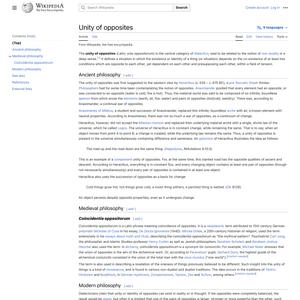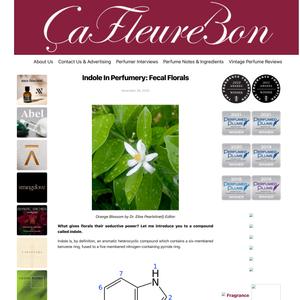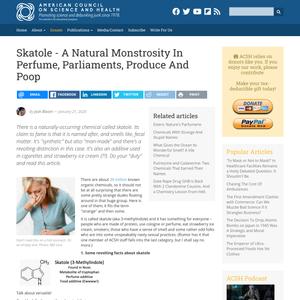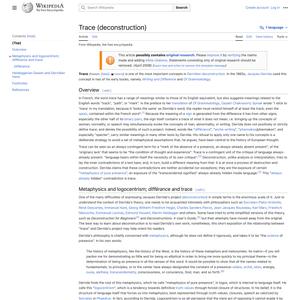Early physicians believed that the nostrils led directly to the brain, meaning that smells had potent effects on the body. The physician Giovanni Cardano wrote that “smell alone amongst the senses can either destroye or quite remake the man.” In this sense, the benefit of animal-derived perfumes was not so much that they smelled good but that they smelled strong. Powerful odors could provide a shield of protection against the more dangerous stenches exuded by the sick and dying.
Noblemen perfumed themselves with the same reeks that wild beasts used to mark their territory.

In the entry on civette (materia medica) in the
Encyclopédie of Diderot and d’Alembert (3.496) we are told that this item of materia medica,
the best of which has a violent odor and was at that time apparently even available from captive animals in Amsterdam, can be made into an unguent that, when smeared on the groin
and lower back, could excite the venereal act.
scatalogical

Vaccines contain weakened or inactive parts of a particular organism (antigen) that triggers an immune response within the body. Newer vaccines contain the blueprint for producing antigens rather than the antigen itself.
A Latin proverb has it that "we never really
know what a thing is unless we are able to give
a sufficient account of its opposite."
- “A wound with blood and pus, or the sickly, acrid smell of sweat, of decay, does not signify death. In the presence of signified death—a flat encephalograph, for instance—I would understand, react, or accept. No, as in true theater, without makeup or masks, refuse and corpses show me what I permanently thrust aside in order to live. These body fluids, this defilement, this shit are what life withstands, hardly and with difficulty, on the part of death. There, I am at the border of my condition as a living being.” (Powers of Horror: an Essay on Abjection)



A small organic molecule made solely of carbon, hydrogen and nitrogen, indole is made up of two carbon-based rings joined together.
Before you get your pitchforks out for Indole, though, keep in mind that it’s derived from tryptophan, which is a precursor of the neurotransmitters serotonin and melatonin. You like being happy and going to sleep right? Well, Indole is part of that process.
Indole is the smell of human bodies and human intimacy, but also an earthly connection between those bodies and the world around them. After all, flowers are the reproductive organs of plants, living, reproducing, and dying, so of course, we would be attracted and intrigued by our similarities to the chemical composition of these glorious flowers.
A philosophical battle over smell has been raging for centuries. The Ascetics (Freud, Weber, Parson, etc.) want to create a sterile anosmic world where people are completely divorced from the reality of their earthly and animal natures, with the hope that, along with the stench, mankind’s baser qualities will go too.
The Sensualists (Bonnot de Condillac, Hume, Locke, most Humanists, etc.) follow that nothing can be known that is not first sensed, so while hygiene is important, we should not be afraid to experience the mere odour of our animal natures or our connection with the natural world. In fact, if we are honest, we really like it.
Some of the worst smells come somewhere in the middle of the decomposition process...At this stage indole also makes an appearance in high concentrations, imparting a strong faecal smell. At low concentrations, however, indole has a pleasant, flowery fragrance and is used extensively in the perfume industry.
The first single celled organisms didn’t have eyes or ears. But they were able to sense changes in the chemicals in their environment so they could find food and avoid predators. This, in a nutshell, is what smelling is: though some magic that we only barely understand, we’re all able to pick up tiny chemical changes in the air.
Indole is the smell of human bodies and human intimacy, but also an earthly connection between those bodies and the world around them. After all, flowers are the reproductive organs of plants, living, reproducing, and dying, so of course, we would be attracted and intrigued by our similarities to the chemical composition of these glorious flowers.




We were also looking
at scents, and a brand’s anxiety around
total incoherence – which is usually the
point when they release a perfume.”
